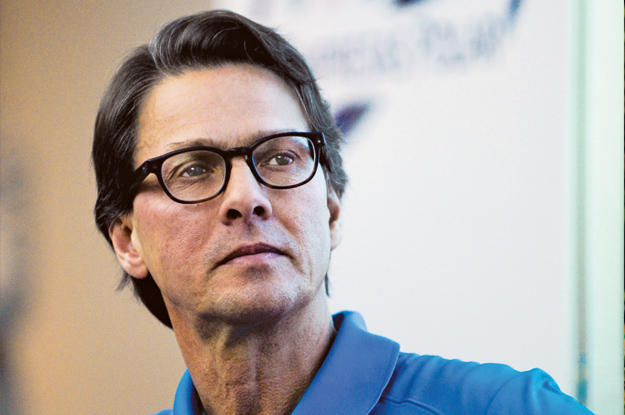
The Captain of Industry | The Musician | The Entrepreneur
The Educator | The Oil Expert | The Politician | The Economist
The Humanitarian | The Rights Advocate | The Foreign Leader
This article is adapted from Americas Quarterly’s print issue on Venezuela after Maduro. | Leer en español
The expropriations started under Hugo Chávez, with the critical oil sector. Over the years, the Venezuelan government seized scores of companies in other sectors —agriculture, finance, industry, telecommunications, even tourism — and placed others under ever greater restrictions.
Bent on controlling strategic sectors, the government would love to control food production — particularly Empresas Polar, the country’s largest food company, which produces half of its arepa flour.
But Polar is different. As ministers struggle to manage the more than 500 companies now under their control, they are wary of touching Polar: A takeover could exacerbate hunger in a country already mired in social, economic and political crisis. That would lead to more unrest.
Essentially, Polar’s competence protects it — and has led many Venezuelans to call on the company’s president, Lorenzo Mendoza, 52, to run for president in this year’s elections.
Years of uncertainty have left many eager to see in their country’s leadership the stability and expertise with which Mendoza has steered Polar. While Nicolás Maduro’s popularity is at 12 percent, Polar enjoys a 90 percent approval rating, according to polling agency Datanalisis.
The government has tried to scapegoat Mendoza for the shortages, claiming businessmen hoard food and price gouge to sabotage the revolution. But Mendoza returns fire, going on national television to explain why Polar is unable to fully supply the market. In a recent week, Polar was only able to buy enough imported maize for its arepa-flour plants to operate at 7.7 percent capacity. Authorities have inspected Polar more than 4,800 times over the past decade. That’s more than one inspection a day, every day, for a decade.
Pro-government media have also attacked Mendoza’s privileged background. And indeed, with his polo shirts and fashionable glasses, he looks every inch the offspring of the country’s elite. An ancestor, Cristóbal Mendoza, signed Venezuela’s declaration of independence and served as president from 1811 to 1812. Mendoza attended a New Jersey prep school, then Fordham University and MIT. At 29, he took over the company founded by his grandfather.
Since then, as one of the last people standing in Venezuela’s beleaguered private sector, he has earned the reputation of being able to make it function again. The changes needed are basic: make regulations consistent and predictable, and drop controls over foreign exchange and prices, for a start.
Mendoza declined to run for president. He did not elaborate, but María Carolina Uzcátegui, president of the national chamber of commerce Consecomercio, said entering politics could draw more persecution for Polar. This could imperil the company’s ability to feed the country and employ 30,000 Venezuelans. But it is clear Mendoza has a vision that goes beyond steering Polar.
“The reality of our region is one of huge inequalities,” Mendoza told Latin Trade when he was named its “social responsibility CEO of the year.” (He declined to comment for this story). “This reality demands a commitment beyond creating companies, a commitment to society and the communities where we work and live.”
He shows this commitment by sponsoring baseball teams as well as health, education and development programs. The Empresas Polar Foundation funds entrepreneurship schools that help the small companies that provide necessities such as soap and export services like graphic design. There, entrepreneurs learn the basics, like how to make a business plan and register a company.
“Venezuela has one of the world’s highest levels of entrepreneurship,” said Patricia Suárez, who leads entrepreneurship workshops in Caracas. “But it also has one of the highest levels of failure,” because many set out without these skills, she said.
Despite his high profile, Mendoza is not the only effective business leader in Venezuela, Uzcátegui said. Banks have kept going despite hyperinflation and a cash shortage, cafés persist despite having to sell bread below cost, and transport companies operate without spare parts.
Once the government allows more freedom, others will appear, she said, toughened like Mendoza by 15 years of controls over currency, foreign trade and prices.
“Just as some countries have statues to their unknown soldiers,” she said, “Venezuela should have a statue to the unknown businessperson.”
Bodzin is a journalist with years of experience covering the energy industry.





